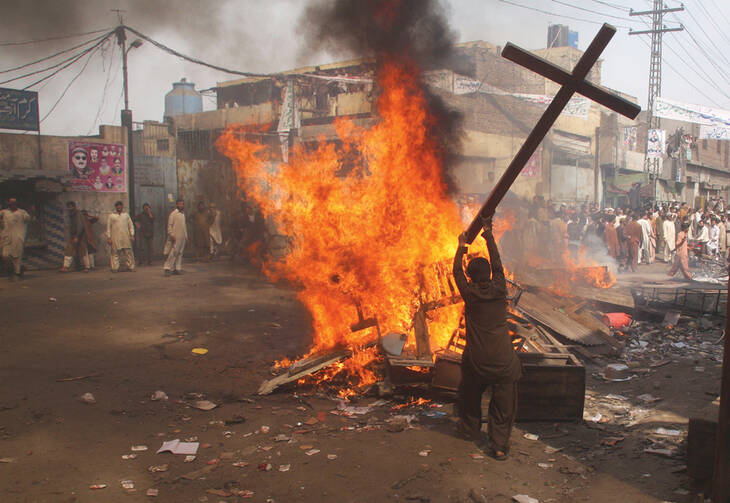Conditions for religious minorities in Pakistan are dire; that is the assessment of a panel that discussed the matter on July 18 in Washington, D.C. In June alone, 47 members of religious minorities were killed in Pakistan, according to the U.S. Commission on International Religious Freedom. The victims included an 18-year-old Christian man tortured to death by police after he was suspected of kidnapping a Muslim woman. “Basic law enforcement and legal reform are desperately needed,” Knox Thames, director of policy and research at the commission, said.
Representatives of the primary religious minority communities in Pakistan, where Muslims are in the overwhelming majority—Christians, Hindus, Ahmadiyya Muslims and Shiite Muslims—spoke out about the suffering of members of their communities. Peter Bhatti, executive director of International Christian Voice, described how he was personally affected by religious intolerance in Pakistan. His brother, Shabaz Bhatti, a Pakistan government minister, was assassinated after calling for the reform of Pakistan’s infamous blasphemy laws, often used erroneously to settle scores, dislocate communities or seize land and property from members of minority religious communities. In addition to physical acts of violence, numerous government policies, like the blasphemy laws, target minorities by making it illegal to say anything against Islam or to harm a copy of the Koran. Bhatti said homes and churches have been vandalized or destroyed, and men and women have been attacked and even burned alive.
As recently as June 3, three Christian women were beaten and forced to walk around their town naked, he said. “Christians are fearful in their own motherland,” said Bhatti. “They are seen as Westerners because they share the same religion" as people in the West.
More than a million Catholics make up part of the Christian minority in Pakistan. In the past year, two Catholic churches and a Catholic hospital have been attacked.
Many non-Muslim women are kidnapped, raped, then forced to marry their abusers in an effort to convert them to Islam, said Jay Kansara of the Hindu American Foundation. Hindus, as the largest religious minority in Pakistan, are especially targeted, he said.
Ahmadiyya Muslims face restrictive voting policies, and Hindu marriages are not recognized by the state, which makes abductions and forced marriages easier. Many public school textbooks, especially history books, show only the Muslim perspective and demonize other groups, according to the commission. Such a bias deeply affects a student’s mindset.
“A large portion of public school students could not correctly identify religious minorities as citizens, and many were skeptical about the potential for religious minorities to assist in the development of Pakistan,” reported the commission’s executive summary on religious discrimination in Pakistan. “Like their teachers, the majority of public school students viewed non-Muslims as enemies of Islam.”
The panelists stressed that religious minorities are too terrified and bullied to act against the persecution, so international pressure to make top-down changes could be the most powerful catalyst for change within the country, according to the speakers.
The commission is eager to have Pakistan designated a “country of particular concern” by the State Department, but so far those efforts have been unsuccessful.








